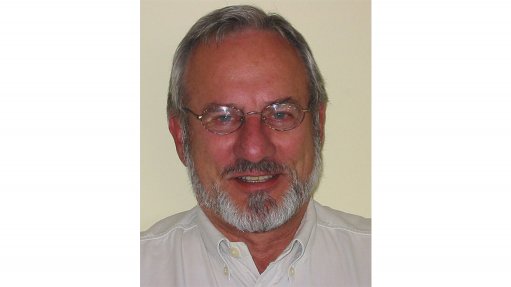
PETER WALKER The opaque bureaucratic policy environment over the past few years has stifled exploration opportunities in South Africa
Small to medium-sized South African geological consulting firms continue to struggle amid a prolonged downturn in exploration opportunities in the country – a situation that has been exacerbated by unhelpful bureaucratic policy – according to local geological consulting group VP3 Geoservices director Peter Walker.
There has been a growing lack of confidence from potential mining investors because of government policies that seem to have undermined the wellbeing of the industry over the past four years, he tells Mining Weekly.
“There has been a great lack of transparency with regard to mineral and exploration licences, a lack of trust in the bureaucracy of the Department of Mineral Resources and Energy (DMRE), as well as a scarcity of risk capital generally.”
However, Walker notes that the statements made by Mineral Resources and Energy Minister Gwede Mantashe during his Budget Vote speech for 2019/20 last month, in the National Assembly, are an encouraging sign that greater transparency is being introduced in the awarding of exploration licences.
Mantashe stated the department’s intention to attract 5% of global exploration spend – which amounts to about R8-billion – to revive greenfield exploration in the country.
“One hopes that this change is a sign of further enlightenment. The DMRE could make huge strides in promoting new investment in the industry by having clear and transparent processes and regulations regarding the awarding and protection of exploration and mining rights,” Walker comments.
To this end, he explains that, in most African mining jurisdictions – especially those of neighbouring countries like Botswana, Namibia and Zambia – one can obtain a regularly updated online map that shows all the exploration and mining licences that have been granted, including the names of the licence holders, the commodities that have been applied for and the expiration dates for these licences.
This is vital information for the industry to function optimally and fairly, and yet such information has not been forthcoming in South Africa, he says.
“Our DMRE has no comparable map at this stage,” Walker asserts, adding that, ironically, the very software used for such geographic information systems was developed in South Africa.
However, with Mantashe announcing the State’s decision to invest in the geoscience mapping programme – through the Council for Geoscience (CGS) – it would appear that these concerns are not falling on deaf ears any longer.
“It would be highly advantageous if the CGS were to become the depository of all exploration results, as is the case in Namibia and Botswana, where results are reported every quarter by exploration licence holders and held in a confidential repository until the licence is relinquished, whereafter all the results are transferred to an open file, thereby preserving and making public the knowledge that has been acquired.”
Currently, in South Africa, this knowledge is lost. A repository like the one that Walker suggests could be used to encourage mining and exploration companies, as well as individuals, to donate technical data of whatever kind.
Walker notes that the DMRE refuses to release this kind of information unless one applies for it using the Promotion of Access to Information Act to force its hand. Even so, the information may be revealed only after a year or more.
The hope is that, with Mantashe’s announcement of a R20-million injection to develop an integrated licensing system over the next two years, the situation can finally be remedied.
“The onerous requirements, red tape and ever-changing regulations around exploration and mining rights have not been conducive to a thriving exploration and junior mining industry in South Africa,” Walker laments.
He notes that neighbouring countries seem to have a different way of doing things, allowing for local geological consulting firms to find continual work there.
“We certainly have not been looking for work in South Africa, owing to the opaque policy environment,” Walker states.
Currently, VP3 Geoservices provides geological exploration services for the Haib copper project, in Namibia.
These services include technical advice, drill planning and general exploration management services, such as the coordination of metallurgical sampling and testing, as well as estimation of resources.
This large-volume copper/molybdenum resource is being explored by Canadian miner and rights-holder Deep South Resources.
VP3 Geoservices provides a suite of basic field exploration services – including geological mapping, geochemical sampling, results analysis, drill planning and core logging and sampling, as well as exploration target generation, target assessment, due diligence studies and competent person technical reports for initial public offerings.